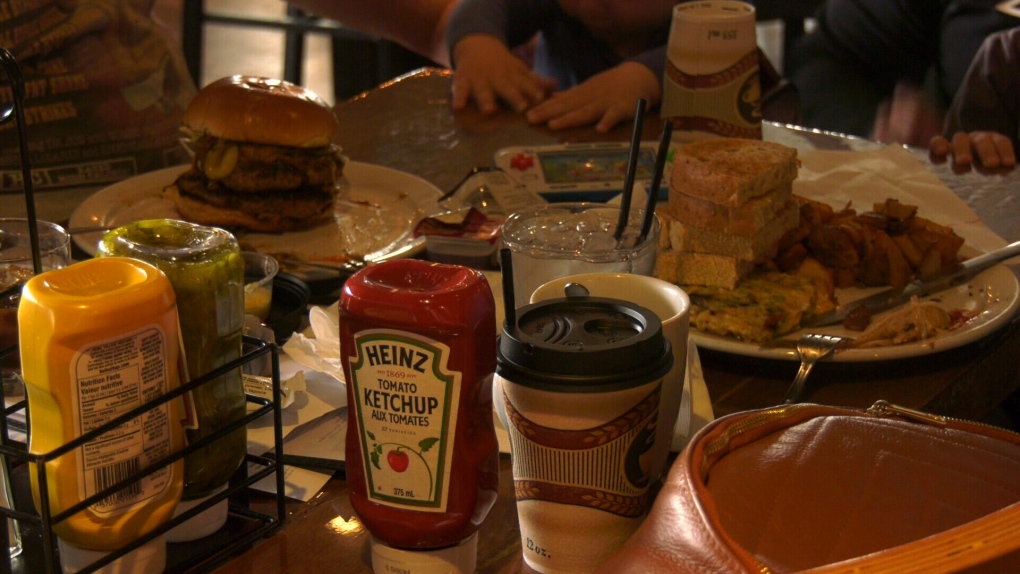“I can tell you that the people that are doing it aren’t the people who are coming here because they’re looking for a sandwich because they’re hungry,” said Ravi Ramberran, “It’s the people who are not afraid of consequences period.”
In the wake of the increase in dine and dashers, Ramberran said his restaurant has ramped up how they deal with it.
“We blast them on Facebook, we hold them, we make them wait for the cops…We do what’s in our power to do.”



1: “Guess what happens when there are fewer workers willing to work in a role…?” You’re responding to a hypothetical I’m not making which doesn’t address my argument. I’m advocating fair pay so workers aren’t reliant on inconsistent tips, not banning tipping outright. In my proposal, fair wages means decreased tips wouldn’t deter workers. Your hypothetical keeps pay low with no tips, unlike my proposal. When discussing the potential for restaurants to seize more control over revenue, it’s important to highlight the power of unions and collective bargaining. Unions exist to represent the interests of their members, and in this case, the workers. They provide a structured, legal avenue through which workers can negotiate better pay, benefits, and working conditions. When a union negotiates with a restaurant or a chain, they’re establishing legally binding agreements that outline worker compensation and rights. This ensures that even if prices increase, there is a legal obligation to ensure workers benefit. It’s a mechanism that places a check on the natural inclination of businesses to maximize profits, ensuring workers aren’t shortchanged in the process. Additionally, unions have strike funds and other resources to support workers who are fired or face retaliation for union organizing, as we are seeing with the recent strikes in Hollywood.
2: The notion that tips place power solely in the hands of the workers is a bit misleading. In fact, tips are at the mercy of customers, and, to some extent, the establishment. Factors like ambiance, quality of food, and even factors beyond a server’s control can influence tips. The current reliance on tips effectively offloads the responsibility of ensuring a living wage from the employer to the customer. This shouldn’t be the case. Workers should be guaranteed a livable wage, with tips serving as a bonus for exceptional service. As for the profit margins, it’s an oversimplification to say that restaurants operate strictly on slim margins and can’t afford wage hikes. If that were the case, how do we account for thriving chain restaurants and franchises? There are restaurants that are extremely profitable, and while there may be challenges in the industry, there is certainly room for wage adjustments.
3: Citing the earnings of top-tier restaurant servers as a standard is cherry-picking. The vast majority of servers don’t earn anywhere near that amount. Additionally, the variability and unpredictability of tips don’t disappear simply because some servers in upscale restaurants earn well. And if every server is supposed to find the highest-tipping establishments, then who fills the roles at the lower-tipping places? The logic doesn’t pan out.
4: The claim that high-earning servers wouldn’t want to unionize misses the bigger picture. The vast majority of restaurant workers are not top-tier servers at upscale establishments. They are workers struggling with low wages and unreliable tips. These workers have every reason to come together and unionize to demand better pay and working conditions from restaurant owners. Historically, the groups most affected by an unjust system are often the ones to lead the charge for change. The claim that restaurants would lead this charge contradicts established trends. Restaurants, as profit-driven entities, are unlikely to spearhead efforts that might cut into their profits unless compelled by external pressures – like a strong union.
Tipping isn’t driven by customers, but an unfair system offloading fair pay onto them. Workers shouldn’t have to rely on tips just to get by. The solution is empowering workers to demand fair wages so tipping returns to being a bonus, not a business model.
Was there a reason to introduce this bad faith direction?